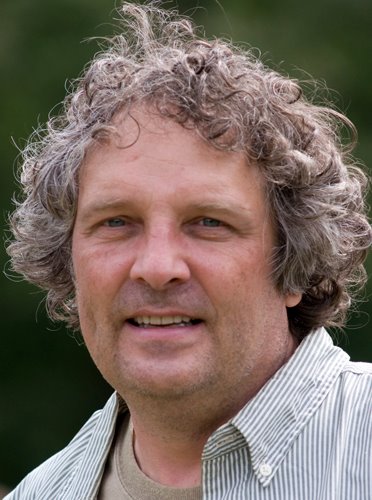Dan Joranko told us about climate impacts in Tennessee and current campaigns to address the climate crisis. This includes national, regional and local campaigns with a particular focus will be on moving toward a 100% renewable future.
Dan reported that 2017 was the 3rd hottest year on record. The 10 hottest years have been since 1998. The last 20 years are already showing an upward trend.
- 1 degree Celsius = risky
- 2 degrees C = highly risky
- 3 degrees C = extremely risky
- 4 degrees C = catastrophic
Note that 1 degree C is about 1.8 degrees F.
We are already beyond 1.5 degrees C and are experiencing drought, deforestation, and extreme weather. Coastal cities are being hit by hurricanes increased by warmer ocean water. We can expect a 3F to 5F degree increase by 2050 and 5F to 9F by 2100!! The state’s major cities have already warmed about 2F since 1950. Chattanooga has the fastest rise in temperature.
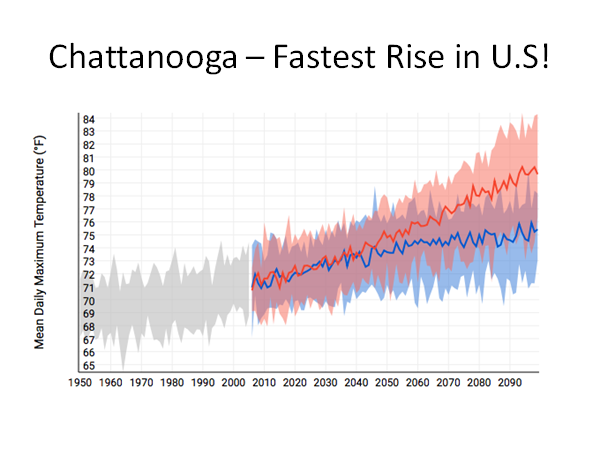
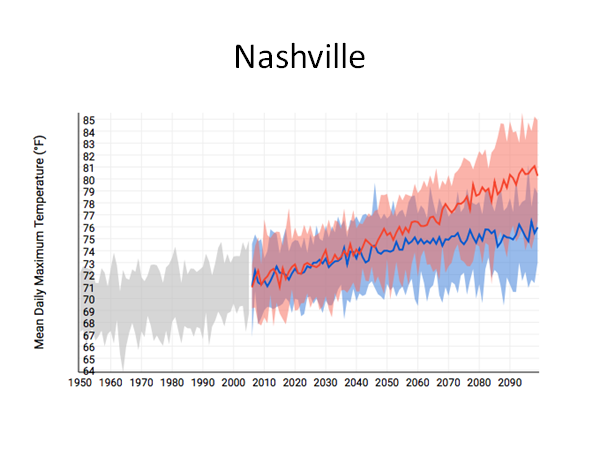
Nashville Extreme Temperatures:
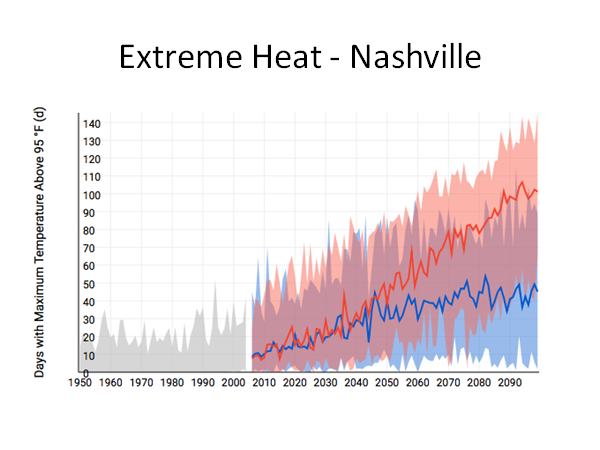
Expect an increase in amount and intensity of rainfall in spring/summer; and extreme drought, increased wildfires, and spread of disease vectors in late summer/fall. Fragile Biodiversity is affected by Extreme Weather. Extreme weather is anthropogenic (human caused). We must have resilient communities in order to live in extreme weather conditions. Systems that Comprise a Resilient Community include:
- Education
- Governing
- Financial
- Public Health
- Utilities/Public Infrastructure
- Human Landscape
- Industry/Business
- Natural Environment
New clean energy solutions including solar, biomass/geothermal/wave and wind are coming online rapidly. One possible future U.S. electric grid configuration for 2050 might be:
Solar = 35% + Biomass, geothermal, wave energy = 25% + Wind Energy = 15%
Goals for clean energy are
- 2030 – 60-70% of current emissions – with larger cuts in the developed countries.
- 2050 – 20% of current emissions – nearly carbon neutral in developed countries.
- 2050-2100 – reaching zero, then negative emissions
The Southern Alliance for Clean Energy (SACE) reports that the Southeast has tremendous solar potential (second only to the desert southwest) and has been experiencing near exponential solar growth for the last five years. The region will have over 10,000 MW by 2019 -- and approximately 15,000 MW by 2021. Visit their web site for current information about clean energy development.
Climate Nashville is a groundbreaking group of faith based, social justice, environmental, and business partners that is leading the local charge to move our region beyond fossil fuels toward a 100% renewable energy economy, reduce greenhouse gas emissions and other air pollution, and ensure climate justice.
Climate Nashville is addresssing a TVA 20-year energy plan under development for the region. Climate Nashville believes the plan should:
- Dramatically increase renewable energy in Tennessee
- Emphasize energy efficiency and conservation
- Protect people of modest means from high energy burdens
- Develop a Green Jobs strategy
- Listen to Nashville residents in developing the plan
Tennessee was an early leader in solar PV. In 2015, Tennessee had more solar per customer than Florida.
Now, SEIA ranks Tennessee 25th across the USA in solar installed (189 MWdc). [Solar Energy Industries Association]. RILA ranks Tennessee 44th for Corporations trying to source clean energy. [Retail Industry Leaders Association]
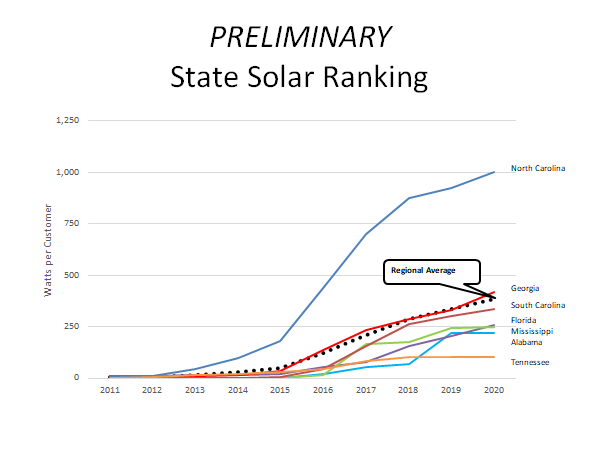
Tennesseans for Solar Choice, a diverse and multi-partisan coalition, will work to remove the market barriers and enable expansion for residential, commercial, and utility-scale solar PV through a statewide grassroots campaign.In 2015 was a leader in solar power in the Southeast. Since then progress has stopped or receded.
Visit the Tennessee Alliance for Progress site to read about clean energy activities in the Nashville area including a campaign to bring Community Solar to Nashville.
Dan coordinates the Climate Nashville Network - a very active grassroots group focused on climate issues. He is the Executive Director of Tennessee Alliance for Progress, which convenes Climate Nashville.
He also co-coordinates the Nashville Chapter of Tennessee Interfaith Power and Light which is part of a national interfaith organization focused on responses to Climate Change. He teaches at Vanderbilt Divinity School - and coordinates the school's prison education program.
